|
Dusty Dog Reviews The whole project is hip, anti-academic, the poetry of reluctant grown-ups, picking noses in church. An enjoyable romp! Though also serious. |
|
Nick DiSpoldo, Small Press Review (on Children, Churches and Daddies, April 1997) Children, Churches and Daddies is eclectic, alive and is as contemporary as tomorrow’s news. |



|
Kenneth DiMaggio (on cc&d, April 2011) CC&D continues to have an edge with intelligence. It seems like a lot of poetry and small press publications are getting more conservative or just playing it too academically safe. Once in awhile I come across a self-advertized journal on the edge, but the problem is that some of the work just tries to shock you for the hell of it, and only ends up embarrassing you the reader. CC&D has a nice balance; [the] publication takes risks, but can thankfully take them without the juvenile attempt to shock. |
Volume 220, May 2011
Children, Churches and Daddies (cc&d)
The Unreligious, Non-Family-Oriented Literary and Art Magazine
Internet ISSN 1555-1555, print ISSN 1068-5154

see what’s in this issue...
Note that in the print edition of cc&d magazine, all artwork within the pages of the book appear in black and white.
|
Order this issue from our printer as a a $7.57 paperback book (5.5" x 8.5") perfect-bound w/ b&w pages You can also get this from our printer as a a ISBN# paperback book (6" x 9") perfect-bound w/ b&w pages Get the book “Unkbown”: |

poetry
the passionate stuff
Arctic SolitudeJe’free
There is a wolf crying a few vowels,
Above me, crumbs of heavenly bodies scatter;
Heat and light - funneled in holes of someone’s door.
Underneath the evening’s spermicide-like cumulus,
|
“Token Not Redeemable For Friendship”CEE
I’m not into being
|
Now that the Housing Dept has decided not toFritz Hamilton
Now that the Housing Dept has decided not to
tear up my floor by myself to see who dwells down there, &
kick them out my door to share them with my neighbors,
Omar, & of course Rush Limbaugh is there &
starts in on my roaches/ Sharon Angle
a song of herself & the corporation who are
9 years/ I see the light of Jesoo hobnobbing with
nothing’s much changed, so
OVER ME, which is at least a
it lifts the floor/ I
RISES ...
!
|
As I remove the black beads from around my neck,Fritz Hamilton
As I remove the black beads from around my neck, they
they eat & burrow their way into me in a
fights so hard to get off, they
hands & wrists, his feet & ankles, &
belly bursts, & the foulest, most lethal
the twisted, anguished souls/ God comes
creations that He has a massive heart MAGDALENE PUKES ... !
|
Mr. Flip in his first grade art classKristine Ong Muslim
It is good to tell lies sometimes,
Previously published in New Madrid Vol. III, No. 2, Summer 2008
|

No Money Down, painting by Jay Marvin
My Dad Could Beat Up Your DadMaxwell Baumbach
when children argue
but
|
| enjoy video of part one of the Maxwell Baumbach Feature which includes this poem (and also has an intro of Maxwell Baumbach poetry accepted in issues of cc&d magazine by editor and the Café host Janet Kuypers) |
|
|
Maxwell Baumbach BioMaxwell Baumbach is a poet from Elmhurst, IL. He edits the Heavy Hands Ink publication, has a youtube channel (Youtube.com/MaxwellThePoet), and likes sports. His first chapbook, “Suburban Rhythm,” was recently published by cc&d through Scars Publications. It is available both as a free read and as an ISBN # book.
|

Trading Cards, art by Nick Brazinsky
Poem from The Hartford Epic (#3)Kenneth DiMaggio
Before you could didn’t matter>
because in a late 1950s
|

Seagull, art by Brian Forrest
ImpasseKevin Heaton
Out on the porch on a crisp
to a mourning dove’s sad song
young and free, bound by chains
The dove’s broken hearted
in the darkness; lament to a lost
|
Kevin Heaton bioKevin Heaton lives and writes in South Carolina. His chapbook, “Postcards of Faith,” is at Victorian Violet Press. His work has appeared in: Foliate Oak, Elimae, The Recusant, Heavy Hands Ink, Carcinogenic Poetry, Pirene’s Fountain, Counterexample Poetics, and many others.
|
On Several Adventures in Municipal GovernmentMichael CeraoloIV
She had failed to meet the pre-requisites of the profession:
|
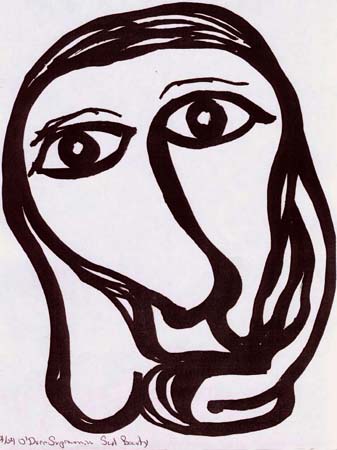
Sad Beauty, art by Edward Michael O’Durr Supranowicz
Manhattan SkylineMel Waldman
Manhattan skyline
Manhattan skyline
Even now, toxic
And at Ground Zero,
looking for the old
|

BIOMel Waldman, Ph. D.
|
Critical ConditionKriste A. Matrisch
It’s happened once before.
But I had to continue
I wonder if my actions tell what he means to me
|
NulliparaJulie Kovacs
Unlike many of my friends growing up
Dreaming of the accolades for that first fashion show
That seemed a long time ago
status quo of happiness was superficial
Feeling far from lonely there was nothing to burden I have not lost my womanhood.
|
About Julie KovacsJulie Kovacs lives in Venice, Florida. Her poetry has been published in Children Churches and Daddies, Because We Write, Illogical Muse, Poems Niederngasse, Aquapolis, The Blotter, Danse Macabre and Cherry Bleeds. She is the author of two poetry books: Silver Moonbeams, and The Emerald Grail. Her website is at http://thebiographicalpoet.blogspot.com/.
|
Dear Canadian Tourist Bureau:
Michael H. Brownstein |

Lines, art by the HA!man of South Africa
DinosaursI.B. Rad
Early paleontologists claimed
|
El Corrido de Antonio BeltranJohn Duncklee
He had listened to the tales of his father
Now it was his turn
They had all tossed pesos in the hat
First sunrise
No work but a meal
Hot
Mendoza knows about some work
They say there is work in Idaho
California by bus
The highway
Mexicali
After comida I take the old guitar from the wall
|
Father Knows BestToni Menden
It is impossible to mistake that smell, sticky sweet.
On one hand, green is the color of envy. On the other,
The man whose lackluster sperm
Funny thing, this sticky sweet green smell,
Family never comes first. I might taint their angels and we mustn’t have that. I hate you.
I never trusted you to be truthful, I learned that lesson young. She was right, you ran. And then you blamed me. You blamed a child.
I can trust you in one way. I can always trust that, in your abject honesty,
When I was five we had a dog, his name was Clifford, and you told me
|
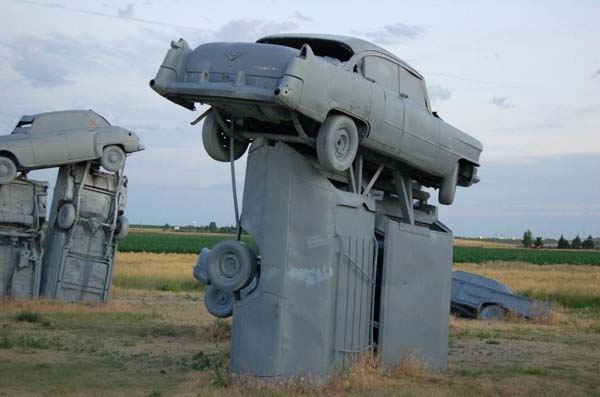
173, art by David Thompson
Tranced in the Existential TrenchesMelvin F. Ballew
I want your touch
I want your touch
I want your touch
I want your touch
|
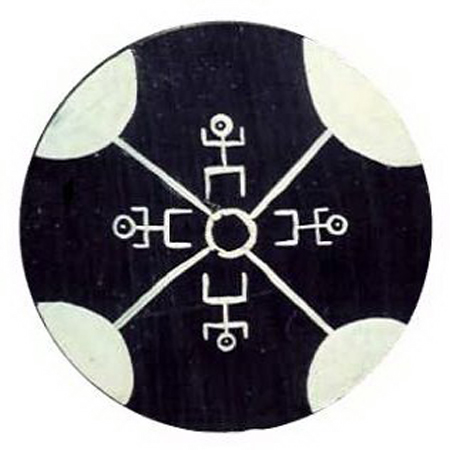
the 4 Winds of Heaven, art by Mark Graham
Anger ManagementCopyright R. N. Taber 2010
I’ve seen a ship-in-a-bottle
I leapt into the frantic sea,
Deaf to the wind, blinded
Suddenly, I’m floating upon
What choice but to negotiate
|

Performance Art
Sexism and other stories, 11/06/10
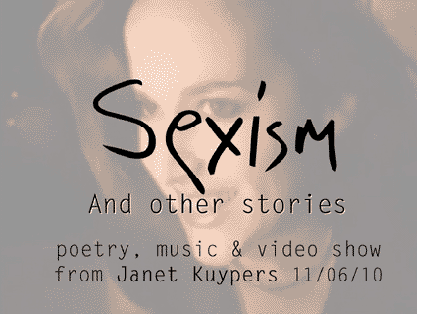
Kurt Irons
Janet Kuypers |
|
Kurt Irons |

Watch this YouTube video 11/06/10 in Lake Villa at Swing State, live in her “Visual Nonsense” show Sexism and other stories |

Watch this YouTube video 11/06/10 from the TV camera in Lake Villa at Swing State, live in her show Sexism and other stories |
the men at the
Janet Kuypers |
|
the Men at the Construction Site |

Watch this YouTube video 11/06/10 in Lake Villa at Swing State, live in her “Visual Nonsense” show Sexism and other stories |

Watch this YouTube video 11/06/10 from the TV camera in Lake Villa at Swing State, live in her show Sexism and other stories |
a man calls a woman
every time a man calls a woman a “bitch” Bob Lamm, 1976 every time a man calls a woman a “babe” he tells her he thinks of her as a child every time a man calls a woman a “fox” he tells her she is to be treated like an animal every time a man calls a woman a “honey” he tells her she is meant to be consumed every time a man calls a woman a “doll” he tells her she is something to be played with every time a man calls a woman a “bag” he tells her she is something to be used every time a man calls a woman a “slit” he tells her she’s a body part, not whole every time a man calls a woman a “screw” all he’s saying is what he’d do to her every time a man calls a woman a “girl” he tells her she can’t think like an adult every time a man calls a woman a “whore” he tells her she is wrong for having sex every time a man calls a woman a “lay” he tells her she is no good on her feet every time a man calls a woman anything less than woman he tells her who’s the boss so yes, we all know who the boss is, boys you’ve done such a good job of telling us |
| with muusician Cousin Bones playing background harmonica: a Man Calls a Woman |

Watch this YouTube video 11/06/10 in Lake Villa at Swing State, live in her “Visual Nonsense” show Sexism and other stories |

Watch this YouTube video 11/06/10 from the TV camera in Lake Villa at Swing State, live in her show Sexism and other stories |
a socially |
|
a Socially Accepted Target |

Watch this YouTube video 11/06/10 in Lake Villa at Swing State, live in her “Visual Nonsense” show Sexism and other stories |

Watch this YouTube video 11/06/10 from the TV camera in Lake Villa at Swing State, live in her show Sexism and other stories |
in their homes |
|
In Their Homes or In The Streets |

Watch this YouTube video 11/06/10 from the TV camera in Lake Villa at Swing State, live in her show Sexism and other stories |

Watch this YouTube video 11/06/10 in Lake Villa at Swing State, live in her “Visual Nonsense” show Sexism and other stories |
The BurningJanet Kuypers
I take the final swig of vodka
|
|
the Burning |

Watch this YouTube video 11/06/10 in Lake Villa at Swing State, live in her “Visual Nonsense” show Sexism and other stories |

Watch this YouTube video 11/06/10 from the TV camera in Lake Villa at Swing State, live in her show Sexism and other stories |
most accurate
Janet Kuypers |
|
Most Accurate Metaphors |

Watch this YouTube video 11/06/10 in Lake Villa at Swing State, live in her “Visual Nonsense” show Sexism and other stories |

Watch this YouTube video 11/06/10 from the TV camera in Lake Villa at Swing State, live in her show Sexism and other stories |
the measuring scaleJanet Kuypers
Here’s an addition for your why don’t you dissect me, take every single part of me and equate it with power tools, sports and violence? bang me, screw me, nail me, hammer me, bag me, pump me. shoot it in me. maybe you can even score.
if we’re talking about
god, i don’t even know how to
|
|
the Measuring Scale |

Watch this YouTube video 11/06/10 from the TV camera in Lake Villa at Swing State, live in her show Sexism and other stories |

Watch this YouTube video 11/06/10 in Lake Villa at Swing State, live in her “Visual Nonsense” show Sexism and other stories |
Scratch the SurfaceJanet Kuypers09/07/09
you don’t have to pull out the Book for Men
hey, they can even try to make it sound nice
but if calling us food or animals is too degrading
but I get furious when I’m wearing a tank top
I mean, do they think honking their horn is a compliment?
I thought the Book for Men covered all the bases,
but I was in a car, and because it was warm
so I got honked at by a semi driver
someone informed me that after their truck horn blares
of a car with a good-looking
wow, a seat cover. thanks.
but we can’t stay pretty
so as I sit in this car
with jokes objectifying women a hoe
but I’m telling you, baby doll
|
|
Scratch the Surface |

Watch this YouTube video 11/06/10 from the TV camera in Lake Villa at Swing State, live in her show Sexism and other stories |

Watch this YouTube video 11/06/10 in Lake Villa at Swing State, live in her “Visual Nonsense” show Sexism and other stories |
My Future Job OptionsJanet Kuypers08/28/09
okay, so I can’t hold a job in my own profession not having an income really pisses me off
I want to yell at the world
I mean, I get to the point
& that’s when it occurred to me:
when my analytical side dominates me this is really beginning to appeal to me
but after my husband has been adequately frightened
I guess it figures
|
|
My Future Job Options |

Watch this YouTube video 11/06/10 from the TV camera in Lake Villa at Swing State, live in her show Sexism and other stories |

Watch this YouTube video 11/06/10 in Lake Villa at Swing State, live in her “Visual Nonsense” show Sexism and other stories |
Counting BodiesJanet Kuypers04/15/10
tried to get a job at the mall
applied for a job in a strip store is that I answered the questions honestly
when they ask if you’ve ever done drugs
even applied for a job in a liquor store
but not in stocking bottles
so someone said that the government
they need you to walk the streets,
and I thought, I’m organized
and a government job would be sweet
and it would be funny to say
so I got on line, learned about the census
making a list, checking it twice
as sick as it sounds,
so I called to schedule my evaluation,
found out I wasn’t even on the map
but I took the test anyway,
I thought about the records of the men they executed
I thought about the detailed Nazi records
and how we had to come in
and I thought
I never was called from the cencus bureau
“you filled out your forms
and I thought
maybe I shouldn’t have applied for this job
maybe they knew I shouldn’t be a part of their system
|
|
Counting Bodies |

Watch this YouTube video 11/06/10 from the TV camera in Lake Villa at Swing State, live in her show Sexism and other stories |

Watch this YouTube video 11/06/10 in Lake Villa at Swing State, live in her “Visual Nonsense” show Sexism and other stories |
“So”Janet Kuypers07/19/10
so the hotel I was in
so i pulled into some dive
i kept me head down
and i didn’t even notice
of liquid into the coffee cup
i watched this black mass
i don’t like coffee, you see
but this was my fault
so there i was
so i’ve got this bailey’s flask in my pocket
so my eyes dart right, then left then slowly drizzle in the creme i watch it form a mushroom cloud from within that contained bomb
i try to remember where i am
i didn’t know
i just looked at my coffee
|
|
“So” |

Watch this YouTube video 11/06/10 from the TV camera in Lake Villa at Swing State, live in her show Sexism and other stories |

Watch this YouTube video 11/06/10 in Lake Villa at Swing State, live in her “Visual Nonsense” show Sexism and other stories |
Death is a DogJanet KuypersDeath is an untrained little bitch it pees on the carpet and barks through the night and it’s always begging for scraps at the table seeing what it can take from you when you’ve got your back turned when you’re not looking
when you want it to heal,
I know what it takes to die
Death is an untrained little bitch
I leave a bowl of water out and I still refill the bowl
and vacuum the dog hair
Death is an untrained little bitch, I tell you
she’ll claim her territory
|
|
Death is a Dog |

Watch this YouTube video 11/06/10 from the TV camera in Lake Villa at Swing State, live in her show Sexism and other stories |

Watch this YouTube video 11/06/10 in Lake Villa at Swing State, live in her “Visual Nonsense” show Sexism and other stories |
And I’m WonderingJanet KuypersI’m wondering if there’s something chemical that brings people together, something that brings people to their knees, somethings that sucks them in
And I’m wondering if you’re sensing what I’m
And I’m wondering if it could work out this
And I’m wondering if you’d find
And I’m wondering why you had to tell me
And I’m wondering why I felt the need
And I’m wondering if a year or two from now,
if you saw me making macaroni and cheese
eyes and I’m wearing an oversized button-down
When I glance up and catch your eyes from
|
|
And I’m Wondering |

Watch this YouTube video 11/06/10 from the TV camera in Lake Villa at Swing State, live in her show Sexism and other stories |

Watch this YouTube video 11/06/10 in Lake Villa at Swing State, live in her “Visual Nonsense” show Sexism and other stories |

Watch this YouTube video of the intro to the 05/10/11 open mic at the Café in Chicago, plus the cover of I’m Free at Last & the poems And I’m Wondering & Dreams 09/24/05 (a phone as a purse that matches my shoes) |

prose
the meat and potatoes stuff

I’ve Got To Get Out of New YorkAnne Turner Taub
It was a typical Greek restaurant in New York City, which meant that there were as many Italian entrees on the menu as Greek. Mary Ellen Owens had been coming here for years and she always felt that the scene was like a play—like that play Separate Tables—the same cast of characters every night. An older lady with a forty-ish daughter, the eighty-year old mother with her middle-aged son. There were several couples like these—all come for the early bird special—hardly ever a husband and wife—by this time one of the spouses had usually passed away.
|
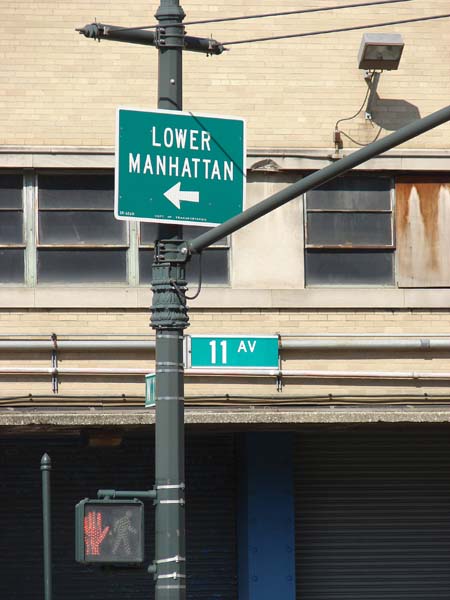
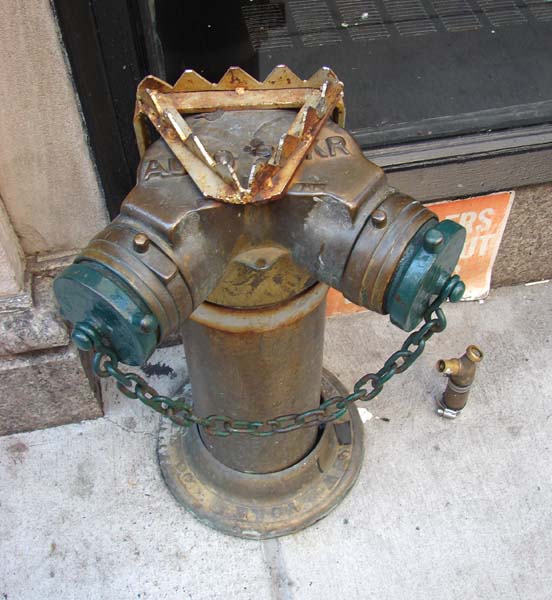

St. Augustine LibraryMelissa Kosciuszko
In my car, safe and mostly cool, I see grandparents pushing their two year old grandson on a swing amongst the trees, back-dropped by the carousel and its red and white striped tented roof. The rest of the play ground is still, mulch and dirt undisturbed, jungle gym waiting patiently for its Saturday fun to begin. Inside the park gate is protected, trees hovering draped in Spanish moss, picnic tables calling, and old-fashioned lights ready to light the way once the day is done.
|
Twinkling of an EyeRonald Brunsky
The Brewer’s annual camping trip was always the pinnacle of their summer. Fred and his brother Jim have been bringing their families to the base of Tecumseh Peak for the past twelve years.
|
Open Forum at the Bughouse Sq.Wes Heine
The Speaker steps up to the soapbox and taps the microphone. A wail of rusty feedback rings out through the park lacerating the air with a sharp frequency of pain. The spectators cover their ears as blood pours out between their fingers.
|
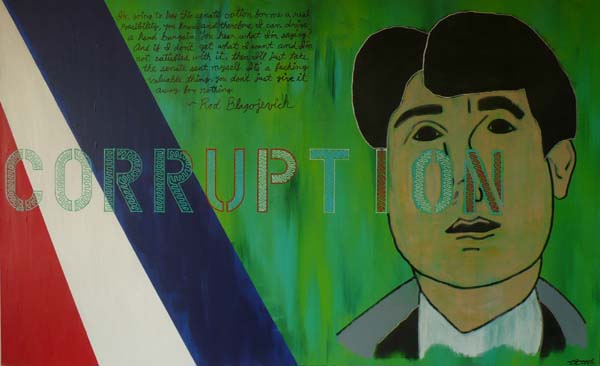
Mockery of Justice, art by Aaron Wilder
My Last LoveBob Johnston
It all started four weeks ago when Roger abandoned my hearth and home. As you know, he is an angel, but he can be a little bitchy at times. We had been together for more than a year, and we were really in love. I truly believed that, at long last, I had found a soulmate. We often talked of being wed, and we planned a journey to Canada, where we would place the seal of legitimacy upon our union.
Where was I? Oh, yes. I paid off the driver and we repaired to Roger’s place, a tiny cubicle above a tattoo parlor. It was obvious that his life on the street was most unrewarding financially. And, my dear, you simply cannot imagine how ghastly that room was. Every wall was covered with pictures cut out of calendars, and the clash of colors was beyond my powers of description. The bed cover was a faux fur rug in a shade of vomit-green. And the only light came from a rickety floor lamp with a fringed red velvet shade.
I find it impossible to describe that night of bliss. Roger was suitably silent and attentive to my every wish. Several times during the night, we availed ourselves of the Jacuzzi, followed by a small meal of delicacies—either cold antipasto with a glass of champagne or Kobe beef cooked to tender perfection on my hibachi, accompanied by saké in small, fragile teacups.
The entire excursion was a most exhilarating experience. We first stopped at Bernard’s establishment. Bernard himself took Roger’s measurements, and then we spent a leisurely hour selecting fabrics for Roger’s shirts, dinner jackets, slacks, sport jackets, and one sharkskin suit for the rare occasion when conservative apparel is de rigeuer. Roger exhibited a surprising flair for style, and he selected the fabrics with unerring good taste. Obviously, someone in his past had instilled in him a sense of the finer things in life—a sense that had been totally obscured by the buffeting of the world.
I’ll skip over the next few months, as you already know much of the story. Roger was a quick study, and there must have been something in his background that provided him with a marvelous instinct for the right move, the right word. I never unraveled this mystery, as he would never talk about his past life, even during our most tender moments.
and you simply must join me in a glass of sherry.
|
Bob Johnston BioBob Johnston is a retired petroleum engineer and translator of Russian scientific literature. He waited until his sixtieth year to start writing fiction and poetry, and over the next thirty years he has been trying to catch up. He lives in the original Las Vegas, New Mexico with his wife, three cats, and some hope of completing his memoirs and the Great American Novel.
|
StiffedJim Meirose
Ronald tooled his orange Buick down International Drive, heading for Sand Lake Road. He had a sheaf of the terrible things in his pocket. He meant to get rid of it.
|
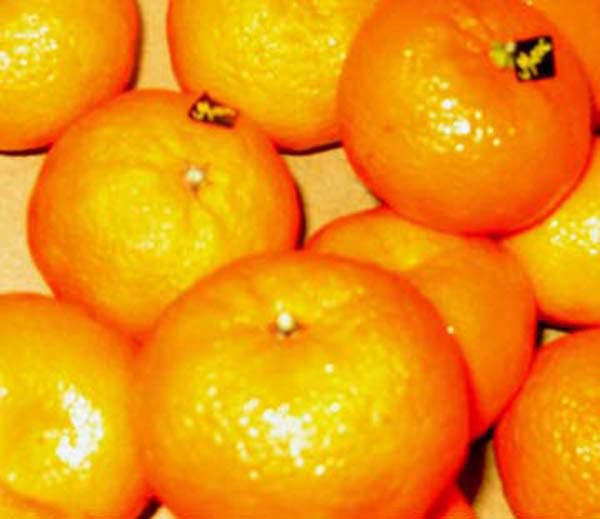
Oranges, art by Cheryl Townsend
Growing up in Chicago’s Alleys.Ted Rashkow
Chicago was a great city to grow up in the 1930’s and 40’s. Money was scarce, even though things were cheap. Mothers stayed home, fathers worked hard, long hours, but glad to have a job. The parks, the playground, and the alleys were the entertainment of the youth. It was the alleys where games were played, “kick the can,” “color with purple”, rubber ball “pinners”, and even baseball, right up against the garages built in back of the apartment buildings. Many times all the kids would travel through the alleys to get places. The alleys held a certain fascination. Alleys were a hub of Chicago’s business. Milk trucks were always delivering to the apartment. The milkmen would carry the milk up three Stories up the back porch. Ice trucks did the same. Old clothes guys hollering “ENY OLE CLUTHES FA ZALE!” People walked their dogs in the alley, garbage was picked up in the alley, and kids played there all the time.
|

Eternal DreamsNely Cab
He came to me in a dream. He wasn’t a handsome fellow, but there was something about his personality that drew me to him. Surely, I must be crazy to have fallen in love with this, a figment of my imagination. I was obsessed...fixated on the idea of him. His name was Daniel.
|
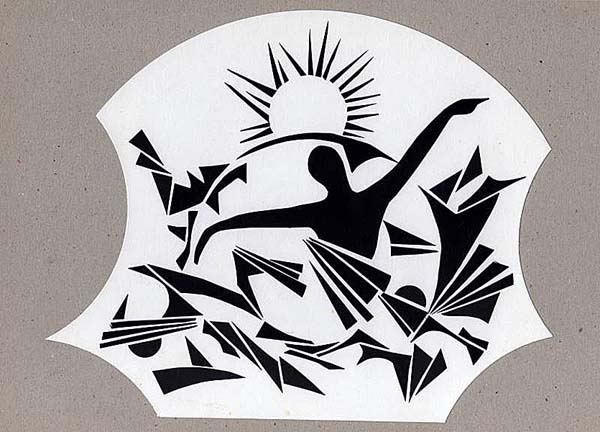
ART645 KUC, art by Üzeyir Lokman ÇAYCI
A Look in the MirrorTendai R. MwanakamBefore the prevalent of the mirror and in a rather backward village of Ruchera in the eastern highlands of Zimbabwe there lived a boy and a girl. His name was Chakupa and he was in love with this very beautiful girl and her name was Runako. It happened that when Runako’s Uncle on the mother’s side came for a visit he brought her a present. It was wrapped in covers so she had taken it outside in order to be alone in enjoying her gift. When she removed the wrappers there was a small hand mirror. When she looked into the mirror she saw a very beautiful girl.
In awe and wonder she rushed joyously to find her lover who was alone at his parents’ homesteads and finding him at home she said. Upon which a long unlasting augment ensured. Runako maintaining that there was a very beautiful young lady and Chakupa adamantly saying there was an ugly man so they agreed to enlist the help of knowledgeable elders. They went to Chakupa’s grandfather who was considered the wisest old man of the entire village and upon arrival they let in the old man into their subject of contention.
Sekuru, and in order to really prove these young stupid adults wrong asked to have a look into the object of their augment upon which he was given the mirror.
“You are stupid, so very stupid children for there is a very wild, angry and ready to attack old baboon”
|
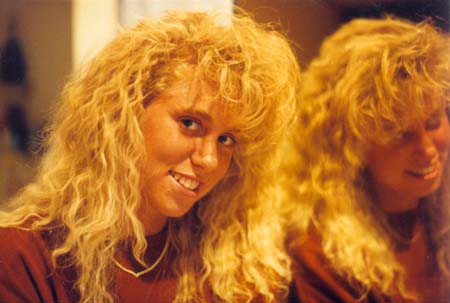
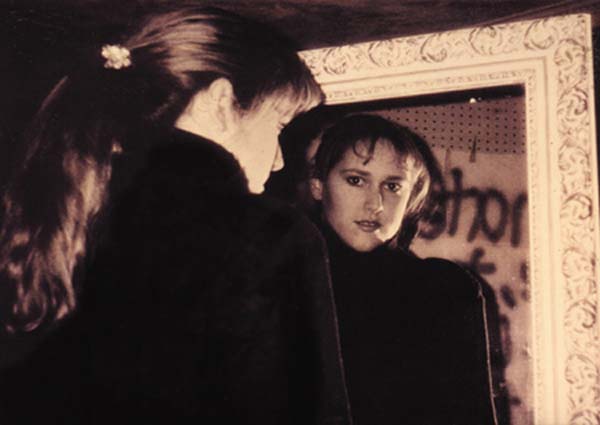
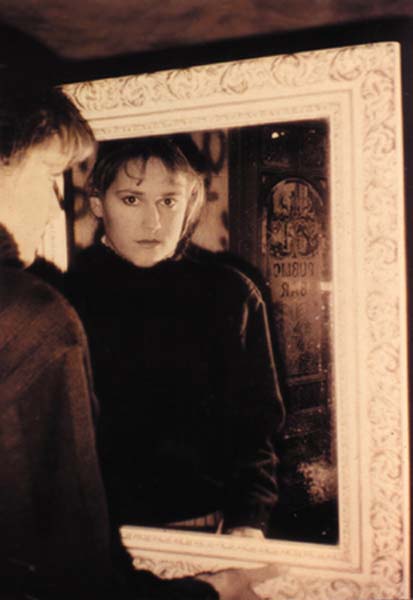
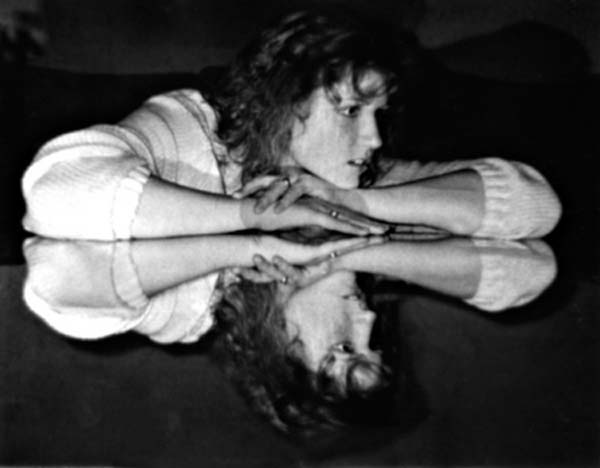
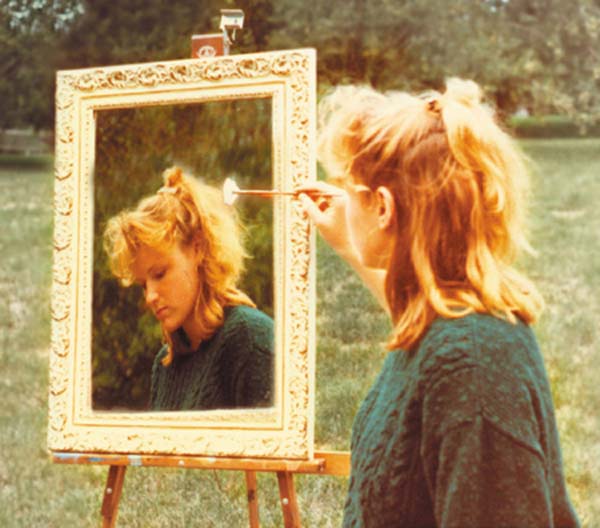
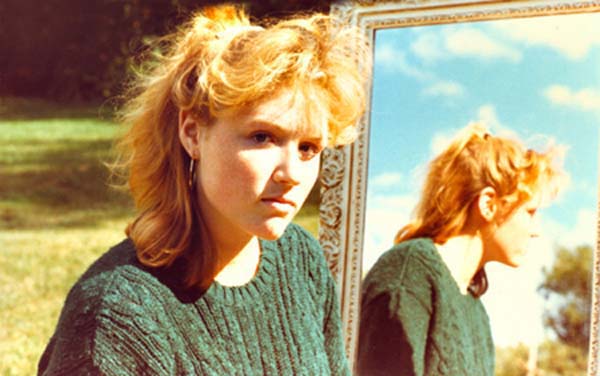
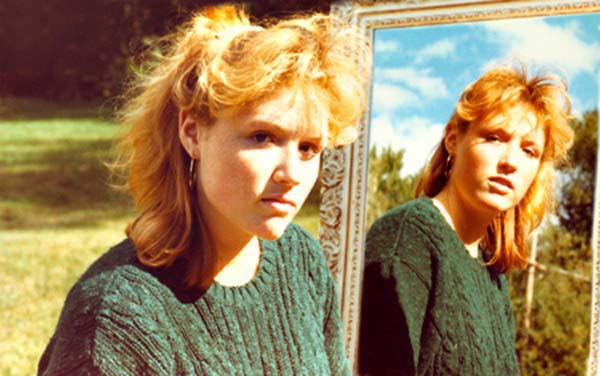
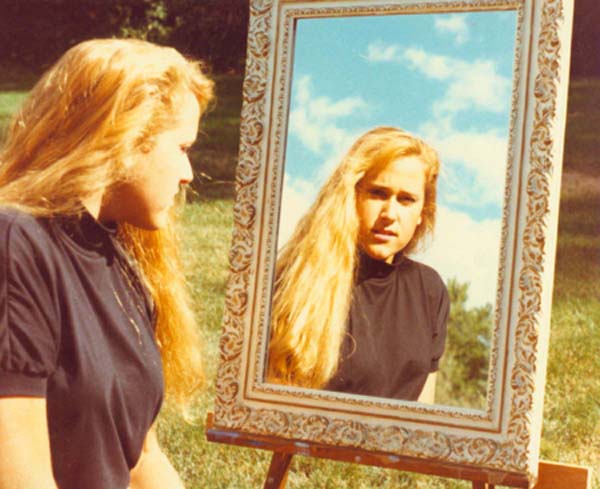
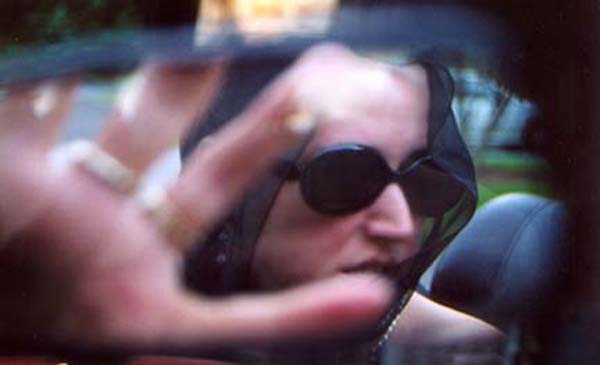
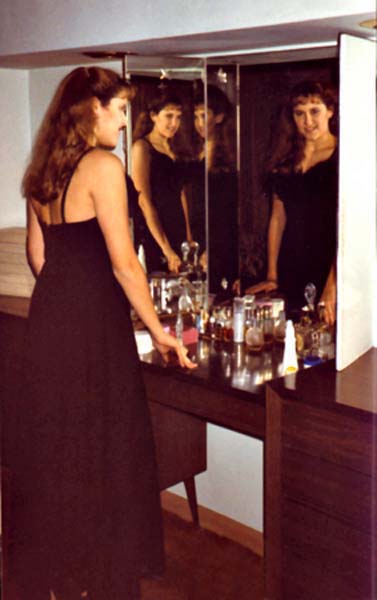
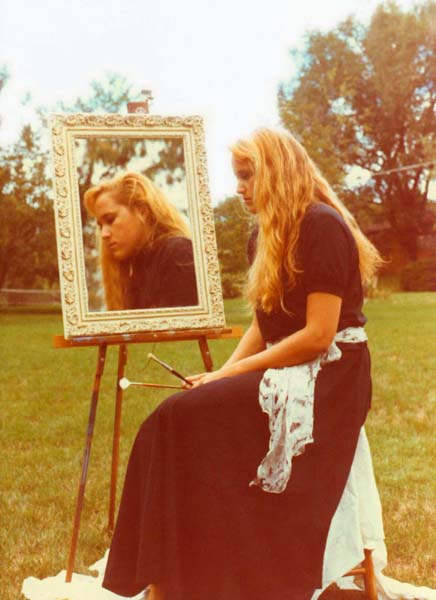

Debra Purdy Kong, writer, British Columbia, Canada I like the magazine a lot. I like the spacious lay-out and the different coloured pages and the variety of writer’s styles. Too many literary magazines read as if everyone graduated from the same course. We need to collect more voices like these and send them everywhere.
Children, Churches and Daddies. It speaks for itself. Write to Scars Publications to submit poetry, prose and artwork to Children, Churches and Daddies literary magazine, or to inquire about having your own chapbook, and maybe a few reviews like these.
what is veganism? A vegan (VEE-gun) is someone who does not consume any animal products. While vegetarians avoid flesh foods, vegans don’t consume dairy or egg products, as well as animal products in clothing and other sources. why veganism? This cruelty-free lifestyle provides many benefits, to animals, the environment and to ourselves. The meat and dairy industry abuses billions of animals. Animal agriculture takes an enormous toll on the land. Consumtion of animal products has been linked to heart disease, colon and breast cancer, osteoporosis, diabetes and a host of other conditions. so what is vegan action?
We can succeed in shifting agriculture away from factory farming, saving millions, or even billions of chickens, cows, pigs, sheep turkeys and other animals from cruelty. A vegan, cruelty-free lifestyle may be the most important step a person can take towards creatin a more just and compassionate society. Contact us for membership information, t-shirt sales or donations.
vegan action
Children, Churches and Daddies no longer distributes free contributor’s copies of issues. In order to receive issues of Children, Churches and Daddies, contact Janet Kuypers at the cc&d e-mail addres. Free electronic subscriptions are available via email. All you need to do is email ccandd@scars.tv... and ask to be added to the free cc+d electronic subscription mailing list. And you can still see issues every month at the Children, Churches and Daddies website, located at http://scars.tv
MIT Vegetarian Support Group (VSG)
functions: We also have a discussion group for all issues related to vegetarianism, which currently has about 150 members, many of whom are outside the Boston area. The group is focusing more toward outreach and evolving from what it has been in years past. We welcome new members, as well as the opportunity to inform people about the benefits of vegetarianism, to our health, the environment, animal welfare, and a variety of other issues.
Dusty Dog Reviews: These poems document a very complicated internal response to the feminine side of social existence. And as the book proceeds the poems become increasingly psychologically complex and, ultimately, fascinating and genuinely rewarding.
Dusty Dog Reviews: She opens with a poem of her own devising, which has that wintry atmosphere demonstrated in the movie version of Boris Pasternak’s Doctor Zhivago. The atmosphere of wintry white and cold, gloriously murderous cold, stark raging cold, numbing and brutalizing cold, appears almost as a character who announces to his audience, “Wisdom occurs only after a laboriously magnificent disappointment.” Alas, that our Dusty Dog for mat cannot do justice to Ms. Kuypers’ very personal layering of her poem across the page.
Fithian Press, Santa Barbara, CA Indeed, there’s a healthy balance here between wit and dark vision, romance and reality, just as there’s a good balance between words and graphics. The work shows brave self-exploration, and serves as a reminder of mortality and the fragile beauty of friendship.
Mark Blickley, writer You Have to be Published to be Appreciated. Do you want to be heard? Contact Children, Churches and Daddies about book or chapbook publishing. These reviews can be yours. Scars Publications, attention J. Kuypers. We’re only an e-mail away. Write to us.
The Center for Renewable Energy and Sustainable Technology The Solar Energy Research & Education Foundation (SEREF), a non-profit organization based in Washington, D.C., established on Earth Day 1993 the Center for Renewable Energy and Sustainable Technology (CREST) as its central project. CREST’s three principal projects are to provide: * on-site training and education workshops on the sustainable development interconnections of energy, economics and environment; * on-line distance learning/training resources on CREST’s SOLSTICE computer, available from 144 countries through email and the Internet; * on-disc training and educational resources through the use of interactive multimedia applications on CD-ROM computer discs - showcasing current achievements and future opportunities in sustainable energy development. The CREST staff also does “on the road” presentations, demonstrations, and workshops showcasing its activities and available resources. For More Information Please Contact: Deborah Anderson dja@crest.org or (202) 289-0061
Dorrance Publishing Co., Pittsburgh, PA want a review like this? contact scars about getting your own book published.
 The magazine Children Churches and Daddies is Copyright © 1993 through 2011 Scars Publications and Design. The rights of the individual pieces remain with the authors. No material may be reprinted without express permission from the author. 
Okay, nilla wafer. Listen up and listen good. How to save your life. Submit, or I’ll have to kill you.
Dorrance Publishing Co., Pittsburgh, PA: “Hope Chest in the Attic” captures the complexity of human nature and reveals startling yet profound discernments about the travesties that surge through the course of life. This collection of poetry, prose and artwork reflects sensitivity toward feminist issues concerning abuse, sexism and equality. It also probes the emotional torrent that people may experience as a reaction to the delicate topics of death, love and family. “Chain Smoking” depicts the emotional distress that afflicted a friend while he struggled to clarify his sexual ambiguity. Not only does this thought-provoking profile address the plight that homosexuals face in a homophobic society, it also characterizes the essence of friendship. “The room of the rape” is a passionate representation of the suffering rape victims experience. Vivid descriptions, rich symbolism, and candid expressions paint a shocking portrait of victory over the gripping fear that consumes the soul after a painful exploitation.
Dusty Dog Reviews (on Without You): She open with a poem of her own devising, which has that wintry atmosphere demonstrated in the movie version of Boris Pasternak’s Doctor Zhivago. The atmosphere of wintry white and cold, gloriously murderous cold, stark raging cold, numbing and brutalizing cold, appears almost as a character who announces to his audience, “Wisdom occurs only after a laboriously magnificent disappointment.” Alas, that our Dusty Dog for mat cannot do justice to Ms. Kuypers’ very personal layering of her poem across the page.
|